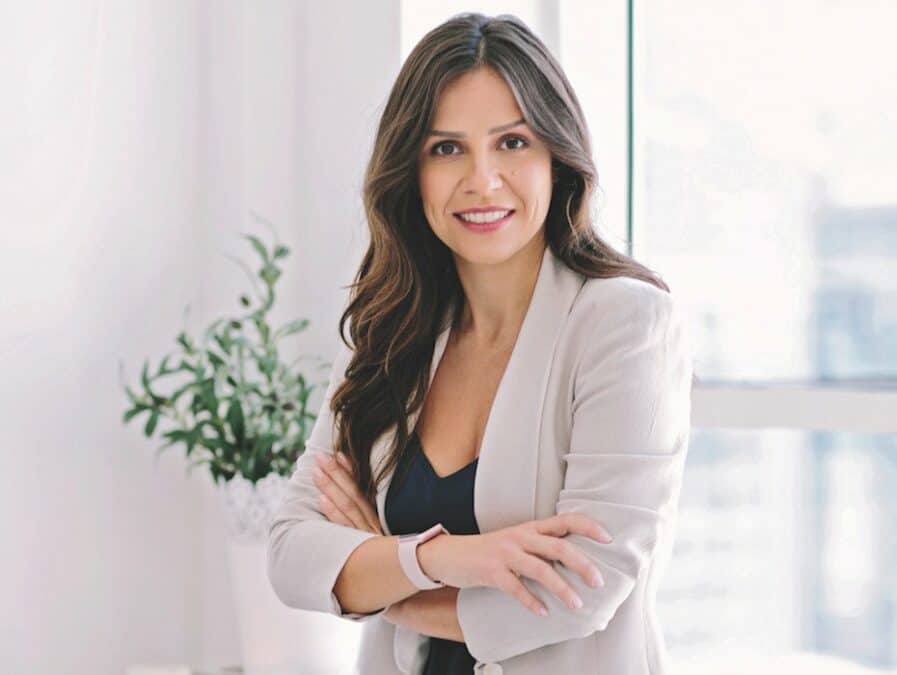The prospects for and representation of women in the tech industry in Gulf have improved over the past few decades. Despite the fact that men currently dominate this industry, there are now more women entrepreneurs in the MENA region.
A recent study by UNESCO found that 57 percent of Science, Technology, Engineering, and Mathematics (STEM) graduates in Arab countries are women. In comparison, 61 percent of university STEM students in the UAE are female. Another study revealed that 34 percent of the region’s tech-focused start-ups have been founded by women.
In the UAE alone, many women are pioneers in some of the region’s most important tech roles. They work in the government, healthcare, and fintech industries.
“I am proud to be recognized as a leading tech entrepreneur in the region” said Melda Akin, Founder, and Managing Director of D14 AI.

“When I first came to Dubai, I had a very low budget and very few connections but a keen entrepreneurial drive which meant I could trust my experience and skills to set up D14.AI. Since its inception in 2018, I have bootstrapped the company, investing over $1 million in revenue back into its core AI scheduling engine and launching three advanced AI-driven optimization solutions for businesses.”
Nonetheless, despite progress, women continue to face challenges and confront bias in the workplace.
“As a woman in tech, there have been challenges along the way,” Melda said. “I encountered numerous barriers on my entrepreneurial journey, but this is changing thanks to the supportive entrepreneurial community and the ambition of female entrepreneurs in the region.”
Melda has now decided to mentor and help other women get into technology businesses.
“I was the first woman to conduct AI and ML training for women in the MENA region – with the KSA Ministries of Cyber Defense and Communications and Information Technology. In addition, I am a mentor for the United Nations and the NAMA Women Empowerment program,” she said. “My mission is to help MENA women build careers in technology by providing them with in-demand tech skills, connecting them with leading business mentors, and assisting them in finding their dream jobs.”

On the other hand, Nikita Kandath, Regional Marketing Manager of Emerging Markets at CommScope stated that some of the difficulties that women in the tech sector continue to face include a lack of funding, underrepresentation in senior roles, a lack of confidence brought on by a fear of receiving unfavourable feedback and not being taken seriously, and a conservative work culture and environment, particularly when it comes to remuneration.
Kandath added that the region’s gender gap in technology continues to dominate the scene, with a lack of female representation in leadership and technical roles. “You see very little participation of women in keynote panel sessions at tech events and conferences,” she said.
The gender gap in the tech industry is a global issue. In 2022, the number of women in big tech fell by 2.1 percent, despite only 19 percent of the total global technology sector workforce being women.
To combat this, Nikita believes that women must be able to self-advocate at work and capitalizing on all the opportunities the market provides to help them pursue their goals.
She went on to advise women in the region to become allies and encourage each other in their careers in technology and as entrepreneurs.

“It is also very important to share stories of successful women business leaders and entrepreneurs to encourage others to pursue a role outside their comfort zone,” Kandath said. “I also believe we need to support women-owned businesses and organizations that empower women, and finally (and most importantly), get out of the ‘imposter syndrome’ phase, recognize your worth, and keep innovating.”
Melda advised women in this industry to ‘know how to code’ continuously and quickly.
The coding, according to her, forms the basis of the digital economy, and programming languages are the 21st-century building blocks for designing modern solutions to society’s most pressing issues.
She suggested that young women interested in pursuing careers in technology understand how technology works, how project management functions, and how to collaborate with tech professionals.
“There are many opportunities for women to build a successful career in technology in the region and globally by developing a deep knowledge of technology and a strong tech community, combined with perseverance and a commitment to your personal goals,” Melda said.







